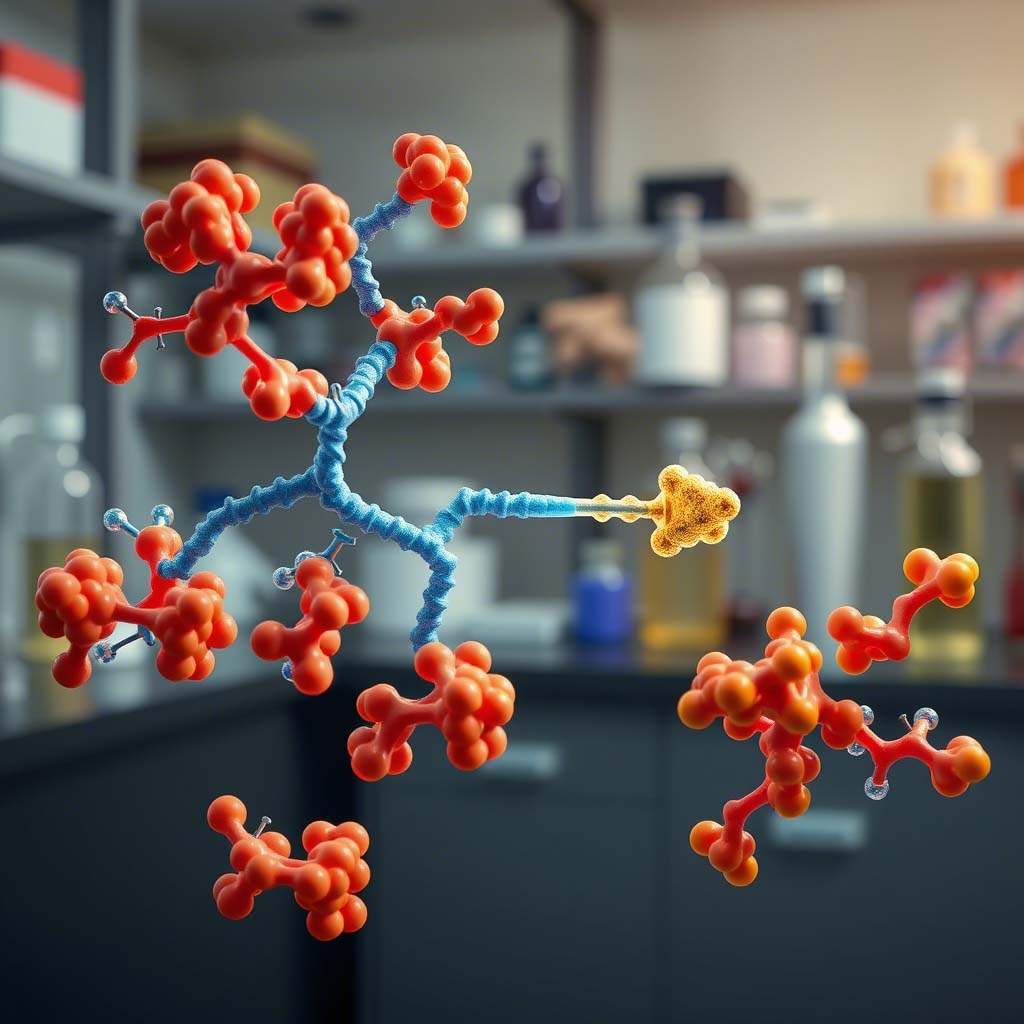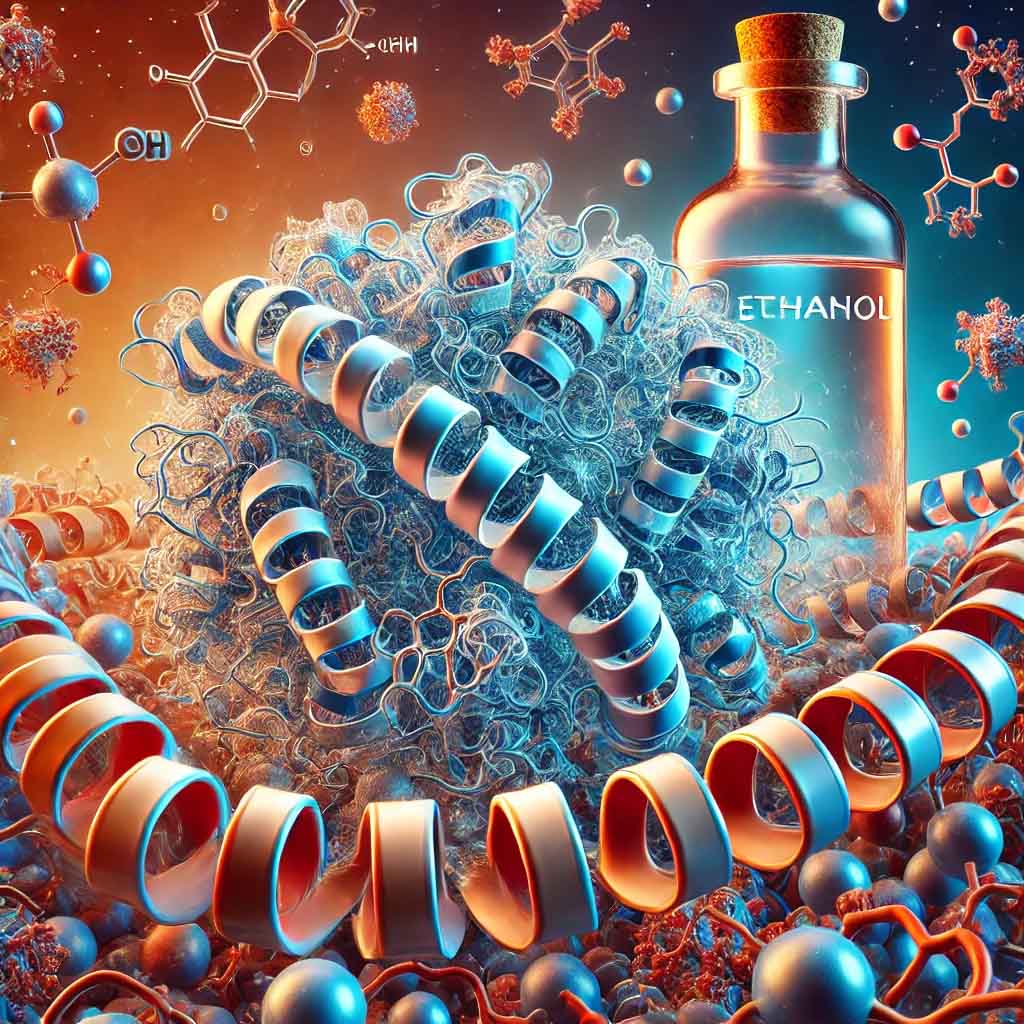Ethanol plays a significant role in the manipulation of protein properties, particularly in the context of flavor, function, and nutrition. As an effective solvent, ethanol is used to denature proteins, enhancing their bioavailability and altering their functional characteristics. This process is crucial for improving the texture, taste, and nutritional value of protein isolates, especially in plant-based foods. By unraveling the protein structure, ethanol exposes hidden hydrophobic groups, facilitating better absorption of essential nutrients. Furthermore, ethanol can help reduce undesirable flavors often associated with plant-based proteins, such as beany or green off-aromas. Understanding the influence of ethanol on protein is essential for advancing food science and improving protein-based food products. We will delve further into these aspects in the following sections.
Click to use Silverigroup personal shopper services
The Role of Ethanol in Protein Denaturation
Ethanol helps to denature proteins, meaning it causes proteins to lose their original shape. Proteins have a specific structure that is held together by bonds, including hydrogen bonds. Ethanol, being less polar than water, can break these bonds and make the protein unfold. When proteins unfold, it exposes parts of the protein that were hidden before, which can improve their texture, solubility, and functionality in food. This process also helps increase the availability of certain nutrients in the protein, making them easier for our body to use. This is especially useful in plant-based proteins, helping them work better in different food products. As a result, ethanol is increasingly used in food science to manipulate the properties of protein isolates, particularly in plant-based proteins, to enhance their usability in various food products.
Click to buy citric acid from Silvairgroup
Ethanol and the Enhancement of Protein Bioavailability
Ethanol plays a significant role in enhancing the bioavailability of proteins, particularly in plant-based protein isolates. Proteins are made up of long chains of amino acids folded into specific structures. Some essential bioactive peptides, which have health benefits, are hidden inside the protein’s structure and can’t be accessed easily during digestion. When proteins are treated with ethanol, it helps to unfold or denature the protein, exposing these hidden peptides. This process makes it easier for digestive enzymes to break down the protein, improving nutrient absorption. As a result, ethanol can increase the effectiveness and nutritional value of proteins, making them more beneficial for the body.
Ethanol’s Impact on Flavor Profiles in Plant-Based Proteins
Ethanol plays a crucial role in improving the flavor profiles of plant-based proteins, particularly those derived from legumes like soy, pea, and lentils. Plant-based proteins often have a distinct, sometimes unpleasant taste due to volatile organic compounds (VOCs) such as aldehydes and alcohols. These compounds can create off-flavors, commonly referred to as “beany” or “green” notes, which can make plant-based proteins less appealing in food products.
How Ethanol Affects Flavor:
- Solvent Action: Ethanol acts as a solvent that can bind to these unwanted volatile compounds, reducing their presence;
- Neutralizing Off-Flavors: When plant-based protein isolates are treated with ethanol-water mixtures, ethanol effectively reduces the intensity of these off-flavors, leading to a cleaner, more neutral flavor;
- Improving Palatability: By neutralizing undesirable tastes, ethanol helps make plant-based proteins more versatile for use in a wider range of food products, from protein powders to meat alternatives.
Click to buy Beluga Fresh Frozen from Silverigroup
Impact on Protein Flavor:
- Pea and Soy Proteins: For instance, soy proteins often exhibit a strong, earthy flavor, which ethanol treatment helps mitigate;
- Taste Perception: With the reduction of off-flavors, the overall taste profile becomes more acceptable, especially when used in products like smoothies, plant-based burgers, and protein shakes.
In conclusion, ethanol’s ability to improve the flavor profile of plant-based proteins is a vital step in enhancing the overall consumer experience, making plant-based foods more appealing and accessible.
Applications of Ethanol-Treated Protein in Food Industry
Ethanol-treated protein isolates are increasingly making their mark in the food industry due to their enhanced functional properties, improved flavor profiles, and bioavailability. These proteins are derived from both animal and plant sources, with plant-based proteins like soy, pea, and lentil isolates being widely used. The treatment of proteins with ethanol modifies their structure, improving their versatility in food applications.

1. Plant-Based Meat Alternatives
One of the most popular applications of ethanol-treated protein is in plant-based meat alternatives. With the growing demand for vegan and vegetarian products, the food industry relies on plant proteins to replicate the texture and mouthfeel of meat. Ethanol-treated proteins, such as pea and soy protein isolates, are favored because they offer better texture and binding properties compared to untreated isolates.
- Enhanced Texture: Ethanol treatment helps create a more fibrous texture, similar to meat, making it easier to create products like plant-based burgers, sausages, and nuggets;
- Improved Water Retention: Ethanol-treated proteins can hold more moisture, improving juiciness and preventing the product from becoming dry or crumbly.
2. Protein Fortification in Processed Foods
Ethanol-treated proteins are increasingly used to fortify processed foods, offering an additional protein boost. Foods like snack bars, smoothies, and protein shakes often contain protein isolates to increase nutritional value. Ethanol enhances the protein’s solubility and bioavailability, meaning it can be absorbed more efficiently by the body, improving the nutritional profile of these products.
- Improved Digestibility: Ethanol treatment can improve the breakdown of proteins in the digestive system, allowing consumers to better absorb the amino acids and nutrients;
- Improved Solubility: Ethanol treatment increases the solubility of protein isolates, allowing them to dissolve more easily in liquids, making them perfect for protein-rich beverages.
3. Gelling and Emulsification in Food Products
Ethanol-treated proteins are widely used as gelling agents, emulsifiers, and stabilizers in a range of food products, including baked goods, sauces, and dressings. The structural changes caused by ethanol help these proteins to form gels or emulsions, providing the right texture and stability to food products.
- Gelling Agents: In products like gummy candies and marshmallows, ethanol-treated proteins create the desired firm texture;
- Emulsifiers: In sauces, dressings, and beverages, these proteins help stabilize emulsions by allowing oil and water to blend smoothly.
4. Improved Nutrient Delivery in Functional Foods
Functional foods, which are designed to offer additional health benefits, benefit greatly from the use of ethanol-treated protein isolates. By increasing the bioavailability of key nutrients, ethanol treatment ensures that consumers can absorb and utilize the protein and other bioactive compounds more effectively.
- Bioavailability: As discussed earlier, ethanol treatment enhances the bioavailability of proteins, making them more beneficial in functional foods aimed at muscle building, weight management, or overall health;
- Fortification: Ethanol-treated protein isolates are often added to functional food products to provide additional nutrients, such as amino acids, vitamins, and minerals.
5. Dairy and Non-Dairy Alternatives
In both dairy and non-dairy food categories, ethanol-treated proteins are used to improve texture, taste, and nutritional content. For example, in dairy alternatives like plant-based yogurt, milk, and cheese, ethanol-treated protein isolates offer better texture and mouthfeel. The proteins provide a creamier consistency that mimics dairy-based products, making them more appealing to consumers.
- Creaminess in Non-Dairy Products: For vegan cheeses or plant-based milks, ethanol-treated proteins enhance the creaminess and smooth texture that consumers expect from dairy-based counterparts;
- Improved Mouthfeel: Non-dairy products like vegan ice creams also benefit from ethanol-treated proteins, which give them a creamier, more indulgent mouthfeel.
6. Beverages and Smoothies
Ethanol-treated proteins are commonly used in beverages and smoothies, where protein fortification is in high demand. The proteins dissolve easily in liquids, increasing the overall protein content without compromising taste or texture.
- Smooth Texture: The solubility and denaturation of proteins improve the mouthfeel of protein drinks, making them smoother and more enjoyable for consumers;
- Nutrient-Rich Beverages: Ethanol-treated proteins are ideal for use in protein shakes, meal replacement drinks, and smoothies, as they add a significant nutritional punch while improving the overall texture and consistency.
Conclusion
In conclusion, ethanol plays a crucial role in enhancing the functionality, bioavailability, and flavor of protein isolates. By altering protein structure, ethanol improves texture, solubility, and digestibility, which is especially beneficial in the food industry. Whether it’s in plant-based alternatives, functional foods, or protein-rich beverages, ethanol-treated proteins offer significant improvements in nutrition and taste. As the demand for healthier, plant-based, and functional foods grows, ethanol’s impact on protein functionality will continue to be an essential tool for food scientists in creating innovative, nutritious, and flavorful food products.

